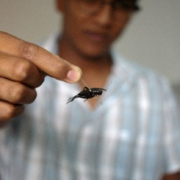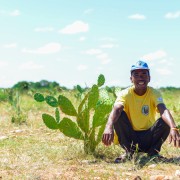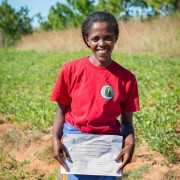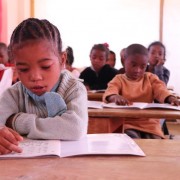Speeches Shim

Livestock production – beef, pigs, goats, sheep – has come under scrutiny as having significant environmental impacts, including being one of the leading factors causing climate change. That is why a group of researchers decided to create a new environmentally-friendly, sustainable meat protein for market in Madagascar – one made from crickets.
The researchers, Dr. Brian Fisher from the California Academy of Sciences and Dr. Andrianjaka Ravelomanana from the Madagascar Biodiversity Center, received a USAID Partnerships for Enhanced

The USAID-funded IMPACT project conducted its first financial business strengthening training for drug shops on May 21st and 22nd in Fénerive Est, in eastern Madagascar. This training was the first of its kind for people working in Madagascar’s private sector to supply health commodities.

Cacti grow in the wild in much of southern Madagascar, blanketing the flatlands like giant weeds, their spiny stalks protruding menacingly. In the village of Belamboa Bas, however, cacti are not a threat, but a life-line. Edible varieties hand-planted in tidy rows just outside of town are the answer to a problem that has plagued the community for decades.

A single mother and high-school dropout leads her community toward prosperity and education. Miharisoa Mahatradrenibe Pauline Elisabeth, a.k.a. Hary, was in 11th grade when her father died. She was a good, serious, and hardworking young girl poised for academic success, but her family was left without a reliable source of income. They had a farm – a small plot of land with a few crops – but this was not enough to sustain both the family and the kids’ education.

Malagasy children deserve the best possible start on their education, and knowing how to read and write is an essential skill. USAID Madagascar and the Ministry of National Education designed a new approach to improve how Malagasy schoolchildren in grades 1 – 3 learn to read. The program was called “Mahay Mamaky Teny” (MMT), meaning ‘I Know How to Read’. With the help of the World Bank, USAID ran a 7-month pilot project at 60 schools in the Analamanga and Boeny regions.

Comment
Make a general inquiry or suggest an improvement.